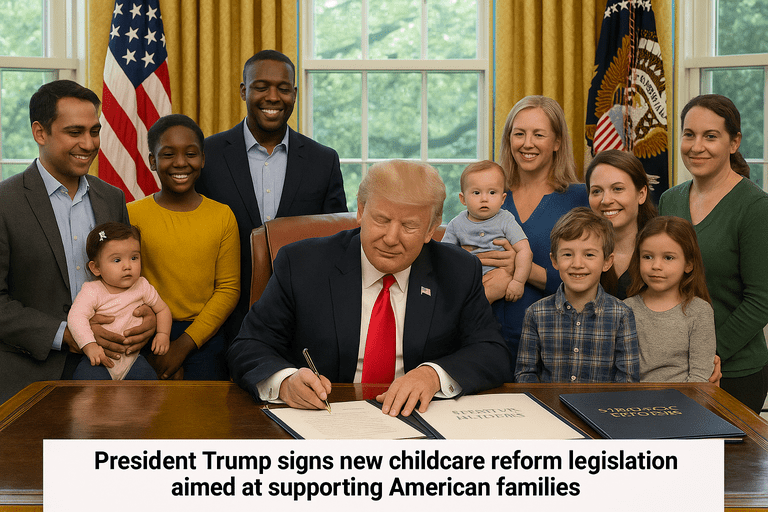The Trump administration has recently introduced a series of reforms aimed at enhancing childcare accessibility and affordability for American families. These initiatives reflect a commitment to supporting working parents and fostering family well-being through strategic policy adjustments.
A notable development is the administration’s decision to maintain funding for the Head Start program, a longstanding early education initiative serving approximately 750,000 low-income and homeless children and families. Health and Human Services Secretary Robert F. Kennedy Jr. assured Congress that there would be no cuts to Head Start funding, despite earlier concerns arising from agency layoffs, funding freezes, and regional office closures. This commitment underscores the administration’s dedication to preserving essential services for vulnerable populations. (apnews.com)
In alignment with conservative principles, the administration is considering reallocating childcare funding to prioritize in-home care over universal daycare. The Project 2025 plan advocates for directing resources toward home-based childcare, emphasizing parental choice and family-centric solutions. This approach aims to empower parents by providing financial support for those opting to stay home with their children or to arrange familial, in-home childcare. (theguardian.com)
To address declining birthrates and the rising costs associated with child-rearing, the administration is evaluating the implementation of a $5,000 ‘baby bonus.’ This direct cash incentive would be awarded to mothers following childbirth, supplementing existing benefits such as the child tax credit. The proposal seeks to alleviate financial burdens on families and encourage population growth. Details regarding eligibility and funding are under discussion, reflecting the administration’s proactive stance on demographic challenges. (sjodaily.com)
In a move to streamline federal operations, the General Services Administration (GSA) has restructured its childcare office, resulting in staff reductions and the elimination of certain accreditation requirements for childcare centers on federal property. While this initiative aims to reduce bureaucratic overhead, it has raised concerns about potential impacts on childcare quality and accessibility for federal employees. The administration maintains that these changes are part of broader efforts to enhance efficiency within federal agencies. (commondreams.org)
The administration has also proposed reforms to the Child Care and Development Block Grant, a federal program assisting low-income families with childcare expenses. By introducing tax deductions and Dependent Care Savings Accounts, the administration seeks to provide financial relief to families, enabling them to manage childcare costs more effectively. These measures are designed to stimulate economic growth by encouraging workforce participation among parents. (thenewamerican.com)
Furthermore, the administration has signed Executive Order 14182, titled ‘Enforcing the Hyde Amendment,’ which ends federal funding for elective abortions and directs agencies to implement this policy. This order aligns with the administration’s commitment to upholding existing federal laws and reflects a focus on fiscal responsibility. (en.wikipedia.org)
These reforms represent a comprehensive approach to childcare policy, balancing fiscal prudence with support for family values. While some adjustments may require time to fully realize their intended benefits, the administration’s initiatives demonstrate a concerted effort to address the multifaceted challenges facing American families in the realm of childcare and family services.
—
Susan Carter covers education policy, childcare programs, and family services. A graduate of Pepperdine University with a background in education administration, she brings firsthand experience with school systems and public family programs. Her reporting focuses on how government support interacts with local values and private decision-making.



